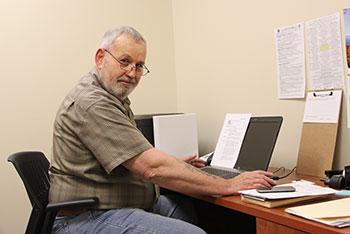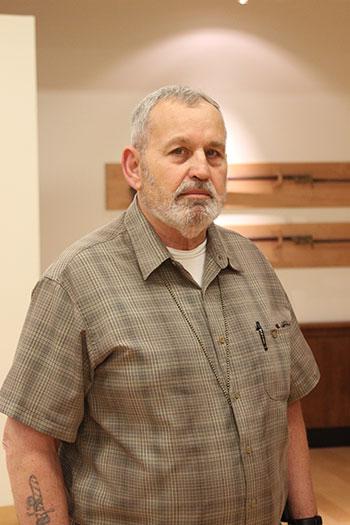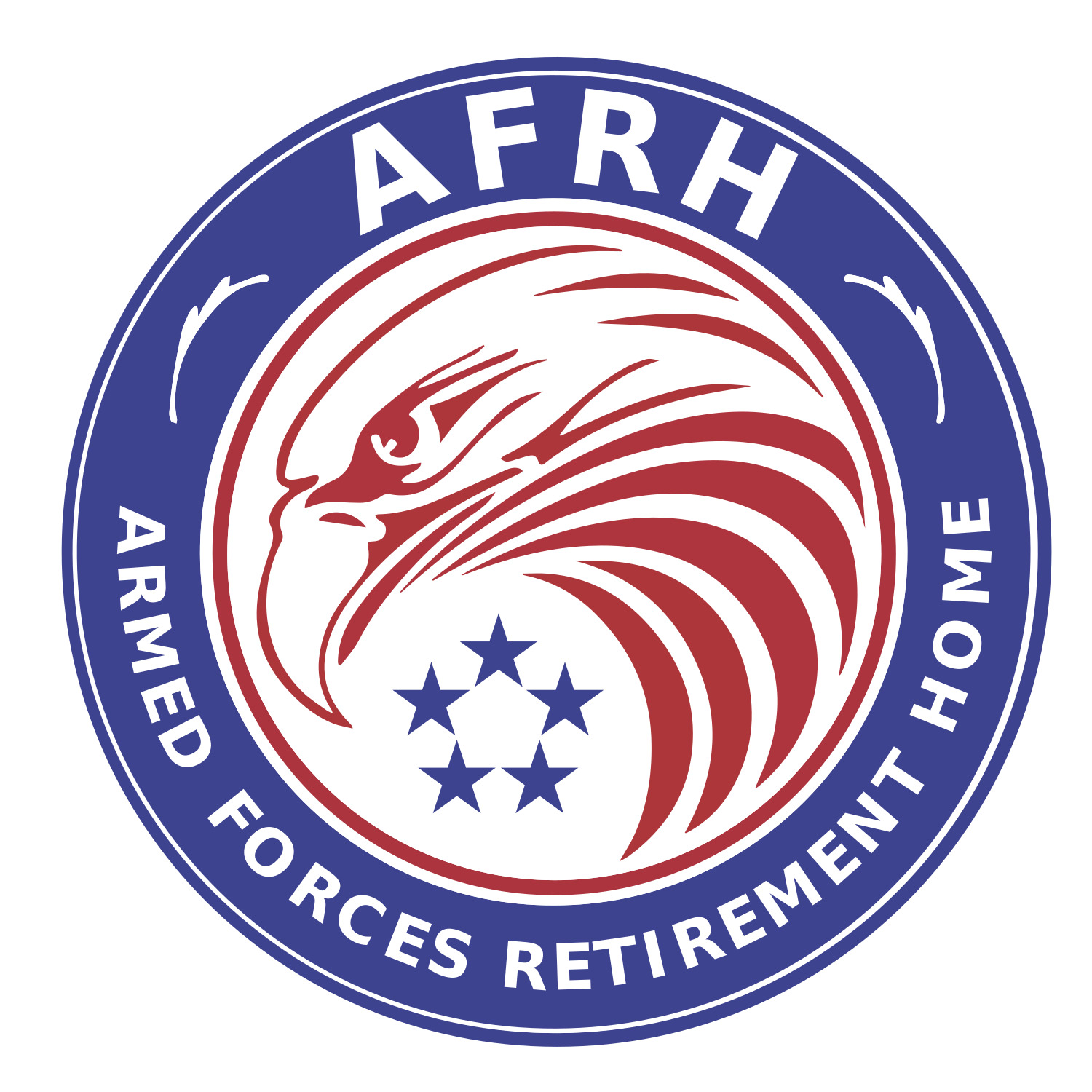

AFRH-G Resident Highlight – Frank Zubko
By Lori Kerns | Librarian
Frank Zubko is the eldest of six children born of two Ukrainian immigrants who settled in Cleveland Ohio after WWII. During the war, his father was taken by axis military forces and sent to a forced labor camp in Belgium, mining coal in support of axis powers logistical requirements. After Germany surrendered, his father, who spoke several languages, assisted regional US Military units as an interpreter. His efforts were rewarded with letters and recommendations by several Commanders to allow him to immigrate to the United States. Growing up, he heard his father’s stories regarding his support during the war. This guided him to join the military. In 1970, Frank enlisted in the Army wanting to do his part in the Vietnam War. Although the draft was still in effect, as a volunteer, he had several options available to him on Military Occupational Specialties (MOS). He chose Helicopter Crew Chief, was sent to Ft. Campbell, Kentucky for Basic Combat Training (BCT), then to Ft. Rucker, Alabama for follow-on Advanced Individual Training (AIT).
After completing training, he was sent to Ft. Sill, Oklahoma for Forward Observer (FO) training. Helicopter crew chiefs were not only required to be door gunners aboard helicopters but were also were required to be able to call for fire from direct and general support artillery units within range of enemy ground forces. While at Ft. Sill, he earned a secondary military occupational specialty of Field Artillery. While training, he was required to attend a mandatory presentation by recruiters looking for volunteers for airborne duty. He volunteered for airborne duty because paratroopers received an additional monthly $55.00 in hazardous duty pay.
Frank was sent to Ft. Benning, GA, completed his Airborne training, earned his jump wings, and was assigned to the 5th BN 81st Field Artillery (Airborne) in Germany which was part of the 8th Infantry Division. In 1973, as airborne positions were being reduced in Germany, Frank volunteered for assignment to the 1st BN 509th Infantry, Airborne Battalion Combat Team (ABCT) with an intra-theater transfer to Vicenza Italy where he participated in multiple mass tactical parachute operations, NATO and Ace Mobile Force (AMF) forced entry, denied access, and airfield seizure exercises. Upon completion of his overseas assignment in 1974, he was reassigned to the 82nd Airborne Division at Ft. Bragg, North Carolina as a section chief of a 105mm howitzer crew. During his assignment, he earned the 82nd Airborne Division’s Artillery “Top Gun’ title during tactical competitions over several days with 53 other howitzer sections. This victory led to a promotion to staff sergeant with assignment to the 18th Airborne Corps as an instructor at the Non-Commissioned Officers Academy. During his assignment at Ft. Bragg, he married his fiancé, the former Rita Wheatley before receiving new reassignment orders to return to the 1st BN 509th Infantry, ABCT in Vicenza Italy. While stationed in Italy, the couple welcomed the births of their daughter April and their son Frank II. Frank served his assignment as a howitzer section chief, was promoted to sergeant first class, managed to get some battalion-level staff experience as an S-3 air NCOIC with responsibilities for scheduling and coordinating fixed and rotary wing air support for the battalion as well as air transport of personnel, vehicles, and equipment. While in that position, he set-up battalion-level training for Airborne Refresher, and Jumpmaster Certification Courses. As a senior field artillery NCO in the battalion, he returned to Delta Battery with duties as the first sergeant due to an unexpected departure of the previous first sergeant and completed his tour with the 1st BN 509th ABCT in 1982.
His next assignment sent him back to the 82nd Airborne Division. While there he held an S-2 Intelligence NCO position at battalion, was promoted to first sergeant, and planned and participated in numerous battery-level training and field exercises in support of brigade-level operations in preparation for no-notice world-wide deployments. During his seven-year tenure, he was promoted to CSM with follow-on assignment back to Vicenza Italy, but this time to the 559th US Army Artillery Group (USAAG), which was responsible to Southern European Task Force (SETAF) for Special Weapons support to NATO. 1991 marked the beginning of the Berlin Wall coming down, the start of removing US Army tactical nuclear weapons from the European Theater by 1992, and culminated with the end of the Cold War with the dissolution of the Soviet Union. His tour of duty being cut short in Italy, with no other available assignments in Europe, Frank was ordered stateside by HQDA with assignment instructions to the US Army Force Mgmt Support Agency, a Field Operating Agency (FOA) with duties in the review and realignment of Army Force Structure, adjustments to manning and equipment, re-stationing of Army Forces, as well as troop reductions. After five years with HQDA, he retired in 1997 with 27 years of active military service. After retiring, Frank accepted a position as a contractor with the US Army Personnel Command (PERSCOM), declassifying Army records. Several months later, Frank was offered and accepted back to HQDA as a government civilian to continue the work in Army Force Structure.
In 2015, Frank sold his home and moved to AFRH-W while still working with HQDA. After approximately a year or so, he decided to assist his fellow residents by serving as RAC ombudsman for assisted-living residents, a bicycle shop manager, and the on-call after duty hours auto hobby shop manager. He continued to serve with HQDA until receiving a call from AFRH-G that his name had made the top of the list for transfer to Gulfport. Frank retired in May 2018 with 20 years of federal civilian service and transferred to Gulfport later that same month. After taking a couple of months to get settled in, he applied for the RAC ombudsman position to support those residents in upper level care (ULC), and was recently appointed as RAC chairman while continuing his support to those ULC residents. We’d like to formally welcome Frank to AFRH-G and thank him for his level of commitment to his fellow residents.
- Log in to post comments
